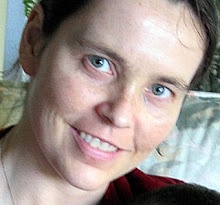So I’m not going to write about doctors who overfeed their patients after all. Those of you going on to an internship will learn about that soon enough. Instead, here are some little snippets from the past two weeks.
The leash has been let out a little, and I’m assessing and treating patients with little correction from my preceptor – I’m sure to ask lots of questions before I write that note, though! I’m seeing between 6 and 8 patients a day, with the chart review taking me at least 2 hours before I even make it to the floor. It’s very satisfying to see a patient moving towards wellness, though the structure here doesn’t allow one RD to follow the same patient very easily, so if I want to follow a patient I have to do it in my spare time. The nurses are starting to recognize me.
I have a favorite doctor here who likes to teach during rounds. He acknowledges all the members of the team and values input from the RDs. He’s not the only one of the doctors to do this, but he seems more passionate than the others. He’s even a little spiritual.
The protein recommendations I made on my case study patient (I mentioned this in my last post) finally made it into the patient’s care plan when another doctor noticed the need for extra protein for the stage III decubitus ulcer on the patient’s back. Nice to have the attending physician back me up. Also nice that I have personally made a difference in that patient’s care.
I had one bad day last week when I couldn’t get a handle on my patient load and felt scattered and off-balance but then I realized that I was trying to keep pace with my preceptor, who’s been doing this for 20+ years. That’s definitely an effective way to sabotage one’s confidence. The next day I came back and did things at my own pace and still got everything done… and did it much better. Lesson learned.
So overall, I’m still having a good time. I hate to admit this as a Bastyr-trained nutritionist, but I’m not so horrified anymore by the idea of tube feeding and parenteral nutrition. No, it’s not whole foods and home cooking, but it can save people’s lives. I can add that this hospital is doing a great job with the “hospital food.” They buy some organic foods, they don’t like hormones in their dairy products, and generally they make tasty, nourishing meals. And the patients love the food (for the most part anyway… you can’t make everyone happy all the time).
How to Lose Arm Fat
3 years ago

No comments:
Post a Comment